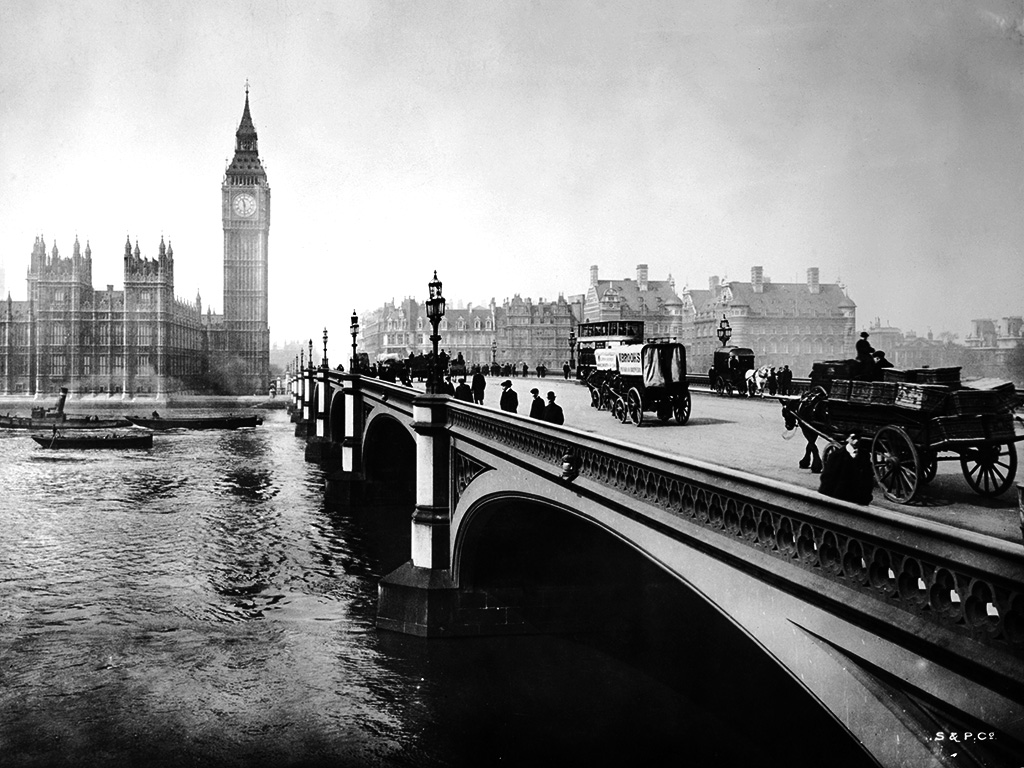
In 1979 my great-grandfather left behind a cracked leatherbound scrapbook. Embossed on the front was the title: “Original Lines. By G. Ewart Lattimer”. It was crammed with his father’s inky, slanted script. George Ewart Markes Lattimer was my great-great-grandfather, a Victorian printworker, born in 1850 or 1851 (he was one of eight children, so his birthday was probably not so notable then).
Over Christmas I’ve discovered a yellowing photocopy of his book – poetry, letters and descriptions of late Victorian London. Growing up in Bermondsey, southeast London, he became an apprentice to a local printer at 14 and worked his way up to a “printer’s overseer” at McCorquodale printing company in 1888.
The first poem is self-deprecatingly titled “An Apology”:
So let me down lightly – that is, not very hard
For a man that’s a Printer is not always a bard”
The style is of his day: neat, rhyming couplets; romantic and patriotic (one rather confronting wartime poem is called “The Hun-natural Foe”); peppered with acrostics for various relatives; preoccupied with duty, sorrow and Broadstairs. There’s a morbid touch too. His second child, Willie, died of convulsions at just 11 months:
I have a son – a second son – his age I cannot tell
For they reckon not by years or months where he has gone to dwell
George was a tenor and, according to my Nana’s older sister, tears would pour down his cheeks when singing at family gatherings. He was “terribly sentimental”, especially after his pre-lunch pint of bitter. Louisa, his wife, would push him and say “get away, you stink”. Not a sucker for acrostics, it seems.
I don’t look like George, I’m not that emotional and if I burst into song it would be other people weeping in anguish. We have little in common – other than being Londoners, working in the print trade, and a maniacal fondness for the Kent coast. But there is much in his amateur scribbling that resonates with what I write.

This winter my reporting as Britain editor of the New Statesman has been dominated by strikes. In the week before Christmas I was interviewing paramedics and nurses on picket lines. It’s the first time in my adult life I’ve seen organised labour dominate British politics. For my great-great-grandfather, a “very strong unionist”, it was central to his world. Fellow members of the composing room chapel bought him a silver tea service for his 25th wedding anniversary.
When offered a management role he turned it down, unwilling to leave his union. “Unless they would allow me to remain a member of the London Society of Compositors I could not accept the position,” he wrote. He was eventually persuaded, but later in an 1894 poem was haunted by making redundancies. (It ends: “I’ll send for you again”.) Another poem, untitled and undated, is an ode to workers’ struggle:
Unions work as one and strike the line
Then Labour like a Phoenix from the fire
Will sure to stand.
In an 1895 letter to the Echo newspaper he argued what government critics do today – that paying workers better would grow the economy: “If all were employed at a fair wage the bulk of their earnings would be spent in necessary comforts, and, therefore, trade would revive to such an enormous extent that there would be work for all.”
It is little wonder he felt so strongly. The country he wrote of was blighted by poverty. He wishes “The workhouse would no longer stand/An emblem black of our happy land”. In February 1898 he was horrified to hear a seven-year-old boy with bare feet and “scarcely a rag on his back” call out to friends on a cold night, “I’m going home!” – his home being a workhouse.
No blazing fire to warm thy poor and slender frame –
The home that thou must go to is not worthy of the name
He saw children begging for pieces of bread outside a north London baker’s. “Think for one moment,” he wrote, “you that live in the lap of luxury, that while you are wondering what expensive dish you can pamper your appetite with, there are thousands of children that can’t get a bite of bread.”
This year I have spoken to parents who can’t afford enough healthy food, and met pensioners falling ill without the heating on. I’ve visited food banks struggling to meet demand. More and more Britons can’t afford the basics – let alone a weekend in Broadstairs. Describing Britain in 2022 as “Dickensian” sounds alarmist. But that’s what the newspaper owner and peer Evgeny Lebedev – no enemy of Conservative Party circles – wrote in a Christmas piece this year.
Reminiscing about his humble roots (playing “marbles on mother earth near brick walls and all kinds of refuse”), my great-great-grandfather grew troubled by the gap between rich and poor. “I cannot understand how the capitalist, and those who are blest with so much of this world’s wealth can rest in all their luxury, and not bestir themselves in trying to ameliorate the dreadful sufferings of the poor.”
In “A Millionaire’s Soliloquy”, he voices a greedy boss:
The widow and the orphan poor
I robb’d them of their little store
Hard work and I ne’er did agree
Employees, underpaid, did that for me
Today, the UK income gap is the largest it’s been in ten years. The Financial Times – again, no voice of socialism – has characterised Britain as “a poor society with some very rich people”.
I’m sure my great-great-grandfather would be moved to song by our protections now – the minimum wage and welfare state. The NHS would make particularly good acrostic material. Yet bleak trends in British life, nearly a century and a half since his first poem, would bring him tears, too.
[See also: Is Britain losing faith in its “national religion?”]






